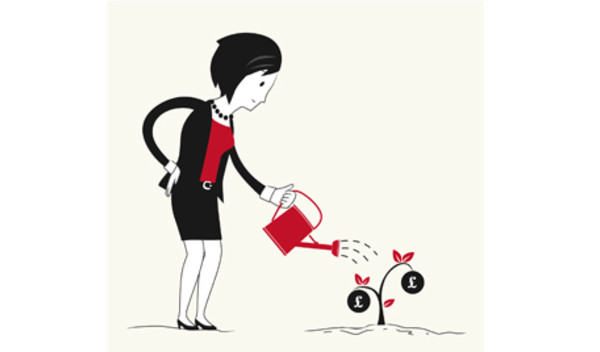

The number of female entrepreneurs in the UK has hit an all-time high of 1.7m, the report stated, but 600,000 of those are not currently saving for their retirement.
Of those that are saving the women in employment generally fare better.
The report found fewer than half of self-employed women are saving the minimum recommended level compared with 56 per cent of women that are employed by a company or organisation.
The report suggested the 46 per cent of self-employed women who are saving the minimum adequate level were among the best savers in the country, with an average savings rate of 16 per cent of income.
This compared with 14 per cent among self-employed men and was also higher than the average saved by both employed men and women at 12 per cent and 10 per cent, respectively.
Jackie Leiper, pensions director at Scottish Widows, said: “A growing number of women are taking charge of their careers by launching their own businesses or working as freelancers – 700,000 have set up on their own since 2005, and 1.7m women are now self‐employed.
“This raises real concerns when we consider that women are historically under‐prepared for retirement and that self‐employed women do not benefit from the safety net of auto‐enrolment, which has helped boost female employees’ savings since its introduction."
She added: “The good news is that when self‐employed women do save adequately, they actually put more of their income aside than anyone else – but the proportion of female entrepreneurs saving at all has not grown in the past decade.
"It’s clear that reform is needed to drive a step‐change in retirement preparations for the self‐employed, in the same way that auto‐enrolment has for employees in the workplace.”
Since 2007/08, the average savings rate for self‐employed women who do save has grown 5.2 per cent, according to the report, significantly exceeding the rate amongst women working for an employer which stands at 3.6 per cent.
One reason for the polarisation in savings can be put down to the wide variation of business earnings of female entrepreneurs, as 80 per cent of self-employed women who save inadequately earn less than £20,000 per year.
Anna Lane, founder and CEO of The Wisdom Council, a majority female‐owned business operating in financial services, said: “Ambition is a major theme that shines through from the women I work with and this is reflected in the increasing number of female entrepreneurs.
"There is a disconnect however with their aspirations and how it will be realised financially, with few having even considered anything other than personal savings to start their own business.”
She added that 30 per cent of businesses fail in the first two years and so this risk paired with the risk of not putting money aside for the future was a double‐edged sword often faced by female entrepreneurs.
“In fact, many women I talk to see their business as their retirement fund,” Ms Lane said. “We need to see more flexibility and innovation in long‐term savings propositions that acknowledge the different earning patterns of the self‐employed.
"We must recognise that this group is often more focused on annual tax returns as a point when income is known for the year and be open to reviewing other tax incentives to encourage saving.”
Meanwhile, figures from the Office for National Statistics out today (November 12) showed the number of women in employment fell in the third quarter of the year, as part of a general fall in employment figures.
The women in employment figure was down by 93,000 to 15.46m in the three months to September, while the number of employed men increased by 35,000 to 17.3m.
Although the data showed the largest annual increase in the number of self-employed since September 2016, at 195,000, women made up less than a third of the 4.96m self-employed total.
Helen Morrissey, pension specialist at Royal London, said: “We can only hope this is a small blip in the overall upward trend as spending any time out of the workforce has a huge impact on women’s ability to build a strong financial future as they miss out on being able to build up a workplace pension through auto-enrolment.
"This trend must not be allowed to continue and we need to do all we can to promote strong female participation in the workforce.”



